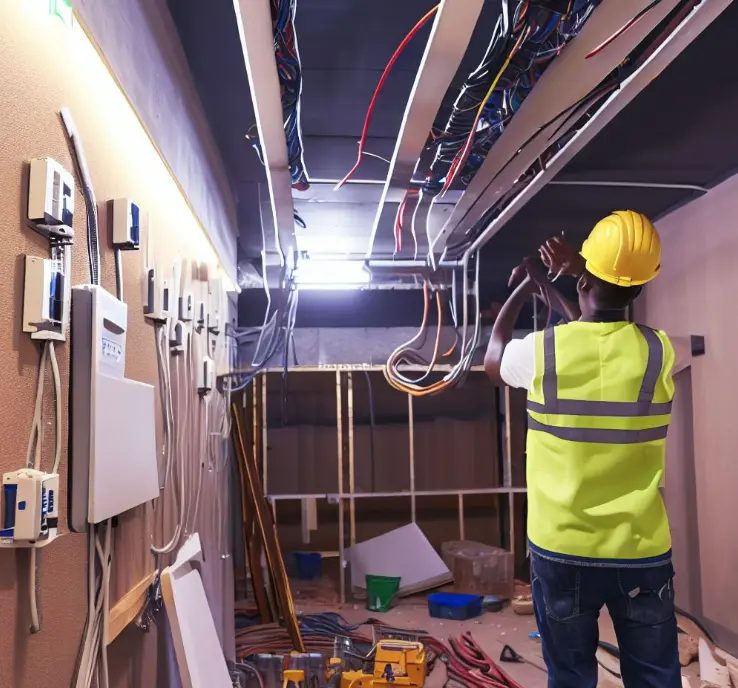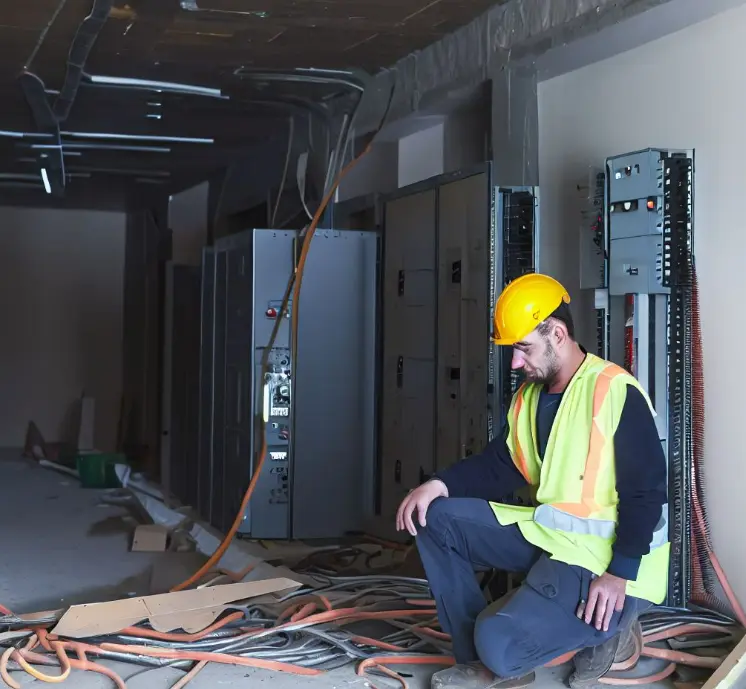Behind the sleek decor and hospitality of a hotel lies an extensive infrastructure designed to make the guest experience special. One of the most important yet invisible systems is the electrical wiring network powering lighting, climate control, and modern amenities that visitors have come to expect.
When planning and executing electrical wiring for hotels, engineers balance safety, efficiency, reliability, and aesthetics to meet guest needs while enabling smooth operations. This article explores key considerations for designing and implementing robust, quality electrical systems in hotels.
Meeting Electrical Demands
The scale of electrical infrastructure in hotels reflects the wide range of uses across many locations. Bedrooms, public spaces, kitchens, laundries, offices, and machinery rooms all have significant power requirements. Electrical designers begin by estimating the total connected load, accounting for typical demand factors that represent realistic simultaneous usage. These load calculations inform the service size, wiring gauges, overcurrent protection, and other factors to provide sufficient capacity.

Balancing all these demands involves careful load estimates and wiring design. Additional strategies like metering, submetering and load diversity factors help managers understand usage patterns and allocate costs. By providing infrastructure scaled to peak demand plus safe capacity margins, electrical engineers ensure smooth operations during a hotel’s busiest times.
Integration and Safety
In addition to capacity, hotel wiring integrates many systems for optimal functionality and safety. Lighting, receptacles, equipment, controls, and low voltage systems must interoperate seamlessly in all settings. This requires consistent voltages and well-planned circuit layouts. In addition, surge protective devices shelter sensitive electronics and controls from power fluctuations. When integrating electrical systems, engineers also incorporate redundancies for resilience. Backup generators or uninterruptible power supplies (UPS) keep critical loads operational if main power fails.

In event of an emergency, reliable power ensures fire alarms, communications systems and egress lighting function properly to protect occupants. By blending comprehensive safeguards into the electrical infrastructure, hotels minimize risks to guests and employees.
Aesthetic Coordination
In guest rooms and public spaces, electrical systems must coordinate with interior finishes and decor. Exposed wiring, switches and outlets cannot detract from the designer’s vision but should blend into each unique environment. Electrical engineers collaborate with architects to strategically place functional elements like accent lighting, dimmers, and audio-visual outlets. They select finishes and colors for devices that complement the surroundings. The result is an electrical infrastructure that conveniently enables experiences for hotel guests while disappearing into the background elegance of world-class accommodations.
Efficient and Maintainable Systems
Though out of sight, electrical wiring remains vital to hotel operations and must withstand constant use across decades. Engineers optimize the system efficiency starting with design, using appropriate conductor sizes, balanced multi-phase circuits, and energy efficient equipment. Intelligent controls further optimize electrical usage while maximizing comfort and functionality. Proper maintenance also ensures electrical infrastructure reliability over years of continuous duty.
 Regular inspections verify all wiring remains in excellent condition with tight connections and intact insulation. Testing confirms effective grounding and bonding pathways as well as functioning overcurrent devices. Preventative cleaning and repairs minimize system degradation while monitoring and load studies help identify needs to upgrade or rebalance circuits. With diligent maintenance combined with optimized designs, hotels benefit from reduced energy costs and virtually unlimited lifetime from electrical systems.
Regular inspections verify all wiring remains in excellent condition with tight connections and intact insulation. Testing confirms effective grounding and bonding pathways as well as functioning overcurrent devices. Preventative cleaning and repairs minimize system degradation while monitoring and load studies help identify needs to upgrade or rebalance circuits. With diligent maintenance combined with optimized designs, hotels benefit from reduced energy costs and virtually unlimited lifetime from electrical systems.
The guest experience shines by blending amenities, comfort, and aesthetics into a welcoming environment. But this is only achievable through the meticulously engineered infrastructure supporting hotel operations day and night. Electrical wiring provides the versatile power essential for lighting, climate control, appliances, electronics, and safety systems throughout hotels. By balancing demands, integrating systems safely and efficiently, and facilitating maintenance, hotel electrical infrastructure creates a foundation for delighting guests while powering business success.
